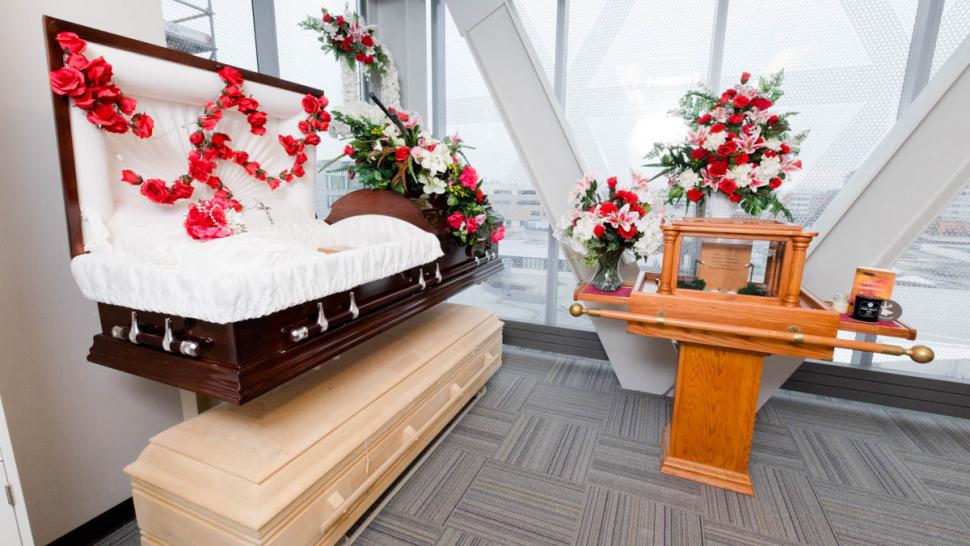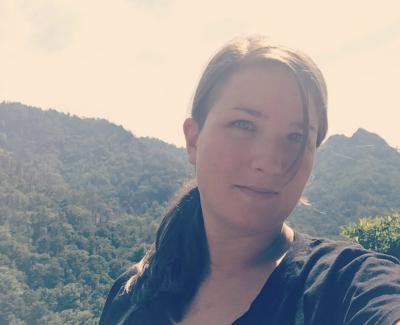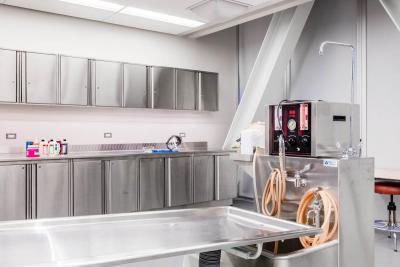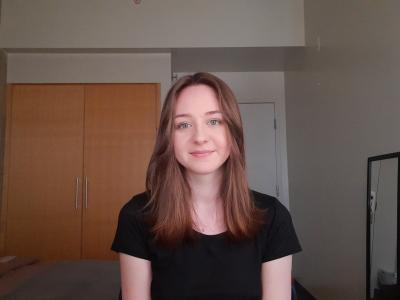
It is a profound act to decide to donate your remains to research and training, so when the Humber College Funeral Services programs receive a donor, they are treated with respect and care. The donor's gift helps prepare the next generation of funeral directors.
"We can learn so much about our own lives and how we function as human beings through the study of death and people who have died. In the program, we learned how to help people through such a pivotal and deep moment," said Humber graduate and funeral director Eryn Russell-Hill
She felt a "gravitational pull" to the funeral industry, driven by a desire to help others.
"The faculty and structure are very dedicated to exposing students to almost every situational experience someone might encounter. It's thorough and provides an opportunity for someone who potentially doesn't know a lot about the industry to become comfortable dealing with deceased people and their families who are so grief-stricken,” said Russell-Hill.
Current and future Funeral Services students will now have an even more positive impact as Humber begins to accept donations directly from the public.

Humber College is identified as a post-secondary institution that can accept body donations under Ontario's Anatomy Act. Most other institutions with the designation are medical universities and chiropractic colleges – Humber is the only community college.
The program coordinator often receives phone calls from potential donors from the general public, so faculty and staff have streamlined the process, making it easier for people to plan for their final wishes. An updated and comprehensive guide to Funeral Services body donation can now be accessed online.
Students in other programs in the Faculty of Health Sciences & Wellness also use donor specimens for study, but the parameters for donation to the programs are narrow and include height, weight and pathology restrictions. Increased public donations will translate into a more realistic hands-on experience for Funeral Services students.

"In funeral services, there are no restrictions. People die at 73 with various illnesses, and students will deal with that in the industry. If someone is larger, for example, and wants to donate their body to science and research, we won't turn them down. We can say yes to all those people." said Jeff Caldwell, a Funeral Services faculty member.
Individuals donate their bodies to the program because they want to have a final positive impact. The process is also less costly than traditional services.
"The cost to families is less than half of what it would cost to deal with a funeral provider for even a simple cremation of remains," said Caldwell.
Once the donation is accepted and received, three to four students work on the embalming, led by an experienced instructor. All faculty members have their Funeral Director Class 1 (Embalming) certifications and have worked in the industry. As the instructor goes through the process and explains each action and why it's performed. When the students feel comfortable, they can assist with the process.

Rachel Oerlemans is completing her Funeral Services internship at Mackey Funeral Home in Lindsay, where her work has already earned her an offer of full-time employment. Going into the internship, she already had technical skills and was ready to build on her classroom knowledge. She was also prepared to adhere to the highest level of ethical practice.
"Humber really focuses on teaching skills of the job that are emotional, and it was very helpful. Everything in a funeral home is to be done in a way that conserves privacy and honours who this person was," said Oerlemans.
There is one final honour for those who gift their bodies to science and research at Humber College. Humber commemorates donors in a memorial service every year and invites next of kin.
In the future, the donor program may facilitate a final project. Students like Oerlemans and her classmates would help put together a memorial service and reach out to donors' families. The service would allow students to expand their learning and prepare to help families create their own celebrations of life.
To learn more about the body donor program, contact Lindsay Jones at bodydonation@humber.ca.